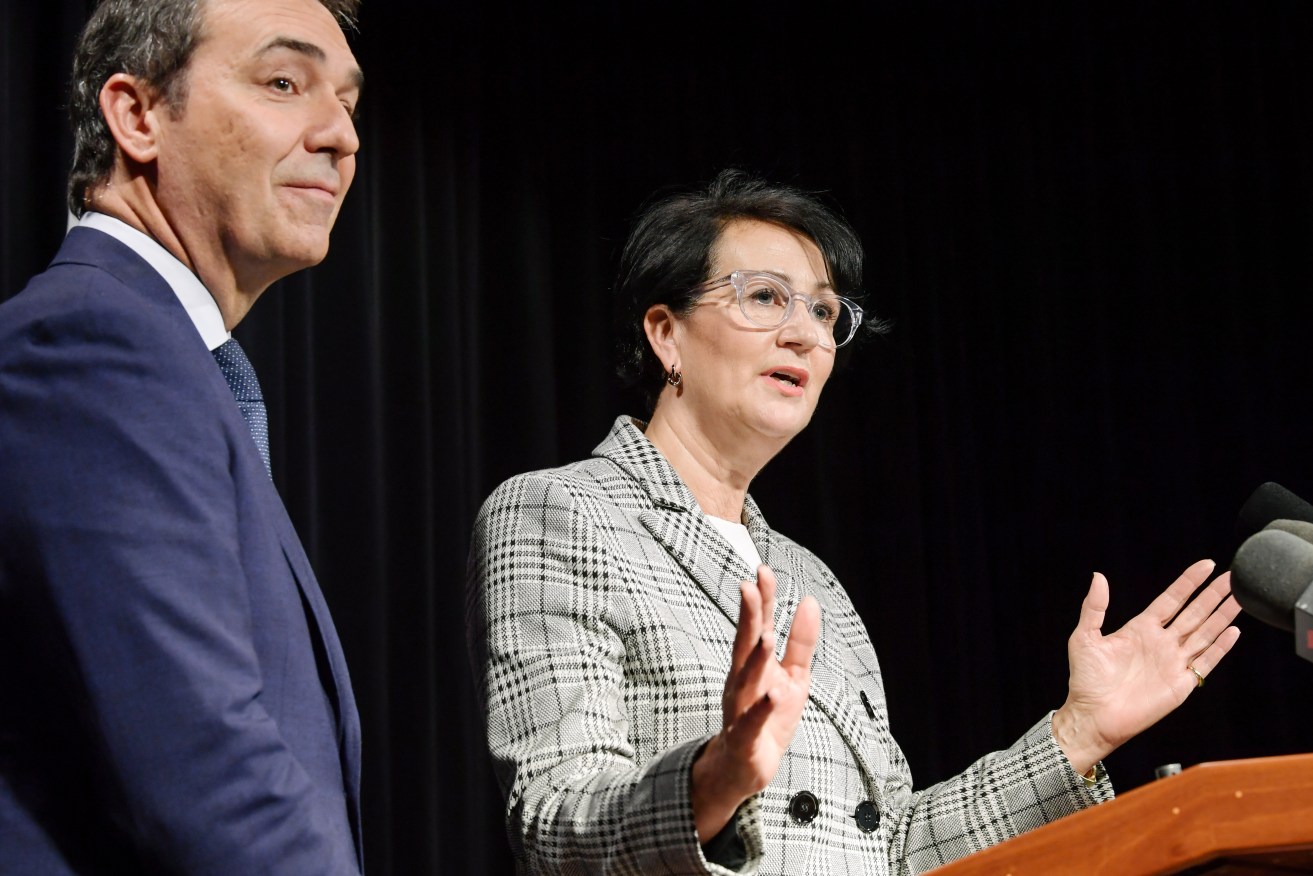No Fairness: Libs concede defeat on constitutional hijack
The Marshall Government has conceded defeat on a controversial change to the state’s electoral laws that was shoehorned through parliament in the dying hours of the last sitting day before the state election, declaring it will not pursue a mooted court challenge.

Vickie Chapman says the Marshall Government won't pursue legal action over the removal of the Fairness Clause. Photo: Morgan Sette / AAP
Senior Liberals were apoplectic when the state’s contentious ‘Fairness Clause’ was ditched from the Constitution Act late on the final day before parliament was dissolved.
Labor had put forward a bill seeking to emphasise the “one vote, one value” principle in future electoral boundary redistributions, but instead leapt on legislative changes put forward by Greens MLC Mark Parnell that altogether removed the fairness clause that dictates boundaries be drawn to ensure the party with a statewide majority should have enough seats to govern.
There won’t be a court challenge in relation to its removal
The clause was one of a raft of constitutional changes introduced via a 1991 referendum, with the consensus having long been that another referendum would be required to subsequently remove it.
But Labor declared it had received last-minute advice from the Solicitor-General – which it refused to release – that the fairness clause could be removed through a vote of parliament.
The then-Liberal Opposition – which had just received its most favourable boundary redistribution since the clause was introduced – was unconvinced, with leader Steven Marshall declaring he would “of course” expect a court challenge to the legislation and would “look at getting our own legal advice on it”.
Vickie Chapman, now Attorney-General, said at the time she would recommend to the Liberal party-room after the election that “we examine and obtain competent legal advice to ascertain whether what they’ve done is legal, because we can’t have a question mark hanging over future boundary commissioners – with or without a fairness clause”.
But Chapman told InDaily today the Liberal Government has now obtained Crown Law advice that “it was constitutional to advance the amendment without a referendum”.
“There won’t be a court challenge in relation to its removal,” she said.
“The matter is now under consideration by the Liberal Party to make a recommendation to us in relation to any restoration or [further] reform.”
Chapman said while the clause was inserted as part of the 1991 referendum “the legal advice we’ve had is that the referendum was not required for inclusion of the fairness clause at the time… and strictly, legally is not required to have it removed”.
“In our view, it still should have been [put to a referendum] because the public had been consulted on this, and their view has been ignored in pushing this through the parliament in the dying days of the last government,” she said.
She said Labor declaring there was legal advice behind the move but “giving no-one in parliament the opportunity to investigate that” was “unconscionable”.
The Liberals now appear resigned to the clause – which has been described by the man who first proposed it, psephologist Malcolm Mackerras, as “silly” and a “failure” – being consigned to the dustbin of history, with the Upper House crossbench unlikely to go back on last year’s vote.
Independent John Darley, who swung behind Parnell’s amendments at the last minute, now remains adamant the clause should have been removed.
Parnell says the clause was effectively a ‘gerrymander’, as it has been described by ABC political scientist Antony Green.
“I just thought it was a bad clause that should be gotten rid of,” he said today.
But Chapman said the Government may still put up further electoral reforms, depending on what the party decides.
“We have to consider whether any other reform needs to be looked at to ensure we have adequate boundary determinations in the future,” she said.
“It may be that it doesn’t require any reform.”
She said Labor’s fruitless Supreme Court appeal against the previous redistribution, which favoured the fairness principle over ensuring an equality of numbers per electorate (the ‘one vote, one value’ principle), nonetheless “confirmed that the new boundaries didn’t turn on whether there was a fairness clause or not”.
“There’s a reasonable question to ask: ‘do we need it to ensure there’s a fair outcome?’” she said.
“We’re in consultation, but there’s certainly a school of thought that it’s not necessary legally for the purposes of obtaining a fair outcome, given the decision of the full court.”




